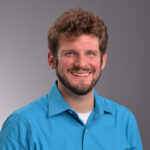Religion and Philosophy
Syllabi - Topic: Religion and Philosophy - 36 results
Select an item by clicking its checkboxA 2013 course by William Robert at Syracuse University on the thought of Luce Irigaray.
A 2005 course by Mark Unno at the University of Oregon focuses on "various Asian religious and philosophical traditions including Hinduism, Buddhism, Confucianism, and Taoism."
A 2014 course by Eric Nelson at the University of Massachusetts-Lowell explores "the early philosophical and religious traditions of China, India, Tibet, Japan, and Korea."
A 2013 course by Eric Nelson at the University of Massachusetts-Lowell "offers an extensive introduction to classics of Buddhist and Zen thought and practice" in India and throughout Asia.
A 2013 course by Eric Nelson at the University of Massachusett- Lowell is an "introduction to Chinese philosophy from Kongzi (Confucius) and Laozi to Chan Buddhism and Neo-Confucianism."
A course by Patricia Miller at Syracuse University explores the "Platonic philosophers and thematics that were most influential in shaping the structures of early Christian theological, cosmological, ethical, and hermeneutical thinking."
A 2010 course by Wesley Wildman at Boston University surveys the "varieties of religious naturalism and how they have been, and can be, incorporated into philosophical and theological reflection."
A course by Patrick Frierson at Whitman College "provides an overview of Kierkegaard's major works."
A 2007 course by James Jones at Rutgers University examines "some of the characteristics of the modern world and their impact on religion, the nature of secularization, and the function of religion in a modern, secular society."
A 2016 course by Michael Dodds, O.P. at the Dominican School of Philosophy and Theology provides "a philosophical account of the nature of change, including classical insights (Aristotle, Aquinas) and contemporary issues in cosmology, the methods of science and philosophy, the nature of causality, time and infinity."
A 2012 course by Amy Brown at the University of Florida "examines the relationship between religion, science, and philosophy in different religious traditions, focusing on the West."
A course by Brad Kallenberg at the University of Dayton on philosophical theology.
A 2001 course by Casey Haskins at Purchase College examines questions such a show film serves "as a vehicle for philosophical ideas" and what film is.
A 2013 course by Christiana Peppard and Nicholas Pampio at Fordham University surveys "concepts of human nature before Darwin" and "debates about the origins,place and purpose of human beings in the early 21st century" following Darwin.
A 2014 course by Eric Nelson at the University of Massachusetts Lowell on "various philosophical and religious explanations of evil and suffering."
A course by James Cutsinger at the University of South Carolina about the existence of God.
A 2009 course by Wesley Wildman at Boston University studies "contemporary forms of atheism and their historical, scientific, conceptual, and theological roots."
A 1999 course by Jeff Robbins at Syracuse University on existentialism and religion.
A 2010 course by Gilbert Harman at Princeton University explores "the nature of morality as a whole . . . moral theories" such as "abortion and our obligations to others."
A 2005 course by James Cutsinger at the University of South Carolina "inquiring into the meaning, foundations, scope, and limits (if any) of human cognition, asking ourselves what the bearing of this knowledge may be on the question of God."
A 2010 course by Dana Hollander at McMaster University explores the "'phenomenological' tradition in 20th-century philosophy" with special attention to "questions concerning God or transcendence by . . . Jean-Luc Marion, Emmanuel Levinas, and Jacques Derrida."
A course by Edith Wyschogrod at Rice University the perspectives of "Plato, Augustine, Anselm, Aquinas, Hume, selected contemporary philosophers, the Vedanta, Jain and Buddhist perspectives will be considered" in response to key questions in religion and philosophy.
A 2007 course by Joseph Magee at Sam Houston State University examines "the nature and meaning of religion and religious expression. Philosophical and scientific critiques of religious faith and experience are considered."
A course by Patrick Frierson at Whitman College focuses "on proofs for and against the existence of God and various critiques and defenses of religious belief in general."
A 2002 course by Casey Haskins at Purchase College "introduces a few of the most important philosophical debates about religion from medieval times to the beginning of the twenty-first century. Among the main topics discussed will be: the problem of defining "religion" as a philosophical and a cultural phenomenon ; arguments for and against the existence of God; the problem of reconciling scientific and religious worldviews; the rationality of religious belief; and the question of what forms religion might, and should, and should not, take in our postmodern and global age."
A 2003 course by Eric Sean Nelson at the University of Toledo asks "what love of God and God can be conceived as" through medieval, early modern European philosophy, Kant, Kierkegaard, and postmodern thought.
A 2012 course by Mary Jane O'Donnell at California State University, Northridge, "introduces and encourages students in the use of the basic concepts of logic and critical reasoning."
A 2007 course by Dana Hollander at McMaster University studies "key work in modern Western philosophy and religious thought that propose different ways of conceiving God and approaching religion."
A 2013 course by Gail Hamner at Syracuse University traces "affect theory . . . from phenomenology . . . and critical theory . . . and in its political reverberations."
A 2008 course by Michael Andres at Northwestern College "is a theological, biblical, and historical study of apologetics, the defense of the faith, from a classical as well as a contemporary perspective."
A 2006 course by Michael Zank at Boston University surveys "Philosophical critiques of revealed religion from Enlightenment to the 20th century, including analysis of criticisms in Antiquity and the Middle Ages. Major trends examined include rationalism, idealism, materialism, and nihilism."
A 2010 course by Martha Reineke at the University of Northern Iowa approaches Existentialism primarily through the thought of Jean-Paul Sartre and the following themes: "Philosophical reflection is situated in the world. . . . Human existence is a question to itself. . . . The human body is an important subject for philosophical reflection. . . . .The existence of the other is a problem to be resolved. . . . .What is freedom and what are the possibilities of humans acting freely?"
A 2012 course by Charles Bellinger at Brite Divinity School "addresses key themes in the writings of Soren Kierkegaard, with a view to the place of his ideas within modern moral philosophy."
A course by Michael Zank at Boston University "covers major sources in the modern Continental philosophical conversation on the philosophy of religion focusing on the writings of Kant, Schleiermacher, Hegel, and Kierkegaard."
A 2018 course by Marga Vega at the Dominican School of Philosophy and Theology "is a survey of epistemology that brings together Classical philosophy approaches with Contemporary debates. . . . a study [of] the nature of cognition, perception and rational knowledge as well as the main epistemological problems that concern these sources."
A 2018 course by Jill DeTemple at Southern Methodist University is "an introduction to the principal questions and modes of argument that have shaped the Philosophy of Religion as an academic discipline." Specific ethical issues are analyzed.

